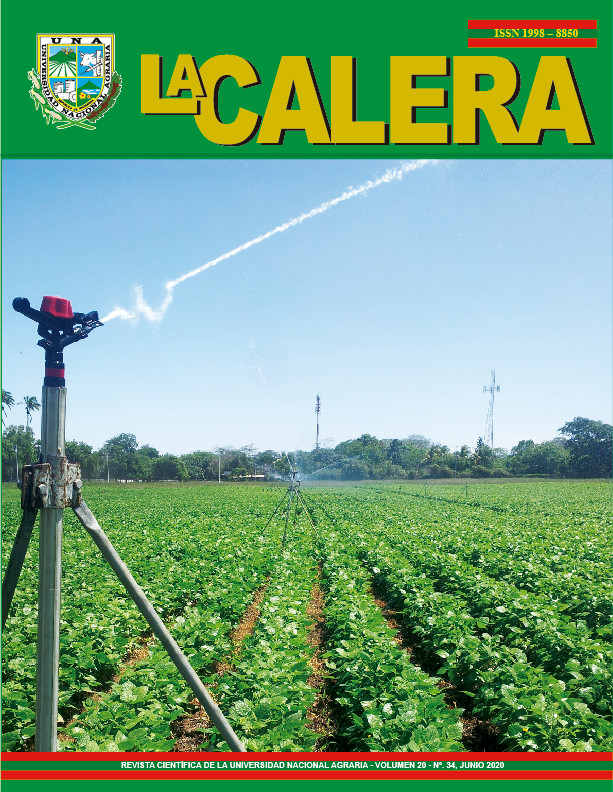Participatory diagnosis and pre-professional practices in communities of El Crucero, Managua, Nicaragua
DOI:
https://doi.org/10.5377/calera.v20i34.9823Keywords:
DEPARTIR, surveys, Cronbach’s Alpha, univariate and multivariate analyzes, dwelling quality index, community developmentAbstract
The Rural Integrative Participatory Development program (DEPARTIR) worked with families, students and research teachers from the National Agrarian University, Nicaragua (UNA), the Agricultural University of Natural Resources and Applied Life Sciences (BOKU), Viena and the Casa de los Tres Mundos (CTM) de Granada, in rural communities of Nicaragua with the support of the Austrian Partnership Programme in Higher Education and Research for Development (APPEAR), and The international Treaty on Plant Genetic Resourses for Food and Agriculture (FAO). During the 2006-2015 period, the program had intervention in 17 communities, developed seven diagnostic editions and prioritized proposals jointly with the families.The objetive of this study was to communicate the appreciation and assessment of the theoreticalpractical course developed by DEPARTIR to students and to analyze basic information collected by students in five rural communities in El Crucero, Managua. Surveys were applied in the family production unit (UFP) to find out the socio-economic conditions with the active participation of students and rural families and intervention by UNA. Students carried out pre-professional practices in rural communities, interacted with families, wrote reports on the current situation, which were evaluated through the Likert scale and the Cronbach’s Alpha (analysis of course evaluation by students and reports written by students). After this, surveys were sampled with information from the rural communities of El Callao, Las Pilas 1, Las Pilas 2, Santa Julia and Daniel Téller (municipality of El Crucero, Managua), and related using univariate and multivariate statistical tools. The description of population pyramid, a dwelling quality index characterized these municipalities. The most representative variables were: area of UFP (X1), people in the home (X2), sex (X3), age (X4), land tenure (X5), organization (X6), religion (X7), months access to the highway (X8) and dwelling quality index (X9). This participatory diagnosis carried out by an interdisciplinary group developed competencies in the students, aroused cognition by investigating the context of rural families; Furthermore, this experience was accredited as Pre-Professional Practice in the Curriculum by objectives. The experience and information obtained from the diagnoses carried out by DEPARTIR can be taken up and used in teaching, research and extension for the formation of community development projects of an interdisciplinary nature in rural communities in Nicaragua. The community population is young, with low levels of illiteracy, but with a moderate quality of dwelling quality index. The population pyramid is progressive. Likewise, the relationship of the communities was discriminated in 77% by the variables X3, X7, X8 and X9.
Downloads
883
HTML (Español (España)) 463
EPUB (Español (España)) 230
XML (Español (España)) 231

